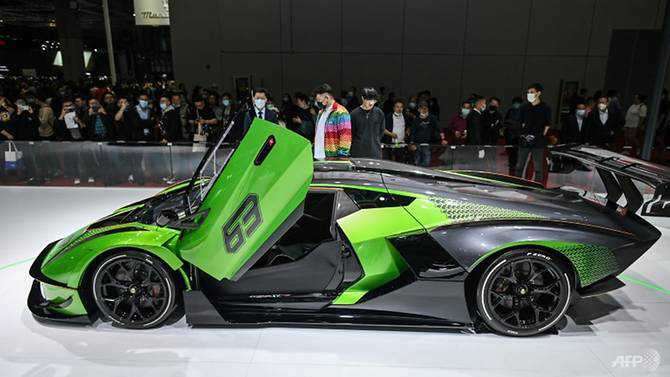World's rich flooring it in post-pandemic extravagance car rush
30 May, 2021

The global rebound from the COVID-19 pandemic is revving extravagance carmakers' sales to never-before-seen heights, as order books at famous brands Lamborghini, Ferrari and Rolls-Royce burst with demand from the world's wealthy.
Exactly like regular earners around the world, the richest cut back on consumption during 2020, with "double-digit" falls in product sales for manufacturers of the very most coveted automobiles, says Felipe Munoz of general market trends firm Jato Dynamics.
But "clients for these cars weren't as exposed as other folks" to the crisis' financial fallout, he adds.
For the wealthy, "the majority of the problem was that they couldn't get out of their houses", Munoz says. "They postponed their buys."
The rebound for exclusive cars was already underway in the final quarter of 2020 because they reached for their platinum bank cards again, cushioning the pandemic blow by comparison to mass-market manufacturers.
Annual sales this past year at Volkswagen-possessed Lamborghini sped previous their 2019 record to 7,430 vehicles, driven by the Italian manufacturer's hefty Urus SUV clocking on at around €200,000 (US$220,000 in the US).
Closed factories meant sales at Ferrari tumbled 10 per cent last year to 9,119.
But bosses say the black-horse brand now has an "order reserve at record levels", driven by the €450,000 SF90 Stradale - the carmaker's first plug-in hybrid - as well as the windscreen-no cost two-seater Monza, thought to cost around €1.7 million.
Ferrari hopes to best the 10,000-product mark next time, when it becomes the ultimate luxury producer to offer an SUV with the "Purosangue".
"TIME TO TAKE PLEASURE FROM LIFE"
"The luxury market still possesses very specific rules and customers," Deloitte car industry analyst Guillaume Crunelle says.
"Behaviour is a lot more linked to personal situations, how their riches is developing, instead of market trends."
After a year with not as much consumption, "there is pretty some money around to be spent," Rolls-Royce chief executive Torsten Muller-Otvos tells AFP.
On the other hand, the BMW subsidiary's boss as well sees the effects of the pandemic in people's buying patterns.
"A great deal of our consumers said that COVID taught them that existence can end easily tomorrow and today is time to enjoy your life."
This week the historic British brand launched a yacht-inspired model, the "Boat Tail", which it has so far built just three units - and won't reveal the purchase price.
Muller-Otvos says that the new car is "a lot more refined" than its last bespoke build, the Sweptail, which cost around US$13 million.
GOING TO CHINA
Rolls-Royce's one-offs notwithstanding, most even among the priciest makers swept along in developments like the unstoppable march of the SUV - and a great environment-conscious flip to electrification, Deloitte's Crunelle highlights.
Jato Dynamics' examination showed that sports cars produced up just five percent of high class sales this past year, while SUVs' industry show outpaced coupes for the first time.
In Britain, Bentley and McLaren let go thousands of personnel as the virus outbreak commenced - limited to Bentley to book record revenue of 11,000 units driven by the €200,000 Bentayga SUV.
Rolls-Royce found its best-ever quarter in early on 2021, powered by its New Ghost coupe and 2.6-tonne, €350,000 Cullinan SUV - the most expensive on the market.
And James Bond favourite Aston Martin has returned from the brink of bankruptcy with its almost equally chunky DBX.
Looking ahead, "production for this year is totally booked", Rolls-Royce's Muller-Otvos says.
Europe and North American remain solid markets for luxury brands, but China is where almost all of the growth are available.
"It's the world's top region for wealth setting up, and cars remain a very potent mark of status," Crunelle says.
Munoz predicts that "with an increase of and more millionaires and billionaires (in China) every year, the trend will probably continue".
Source: www.channelnewsasia.com
